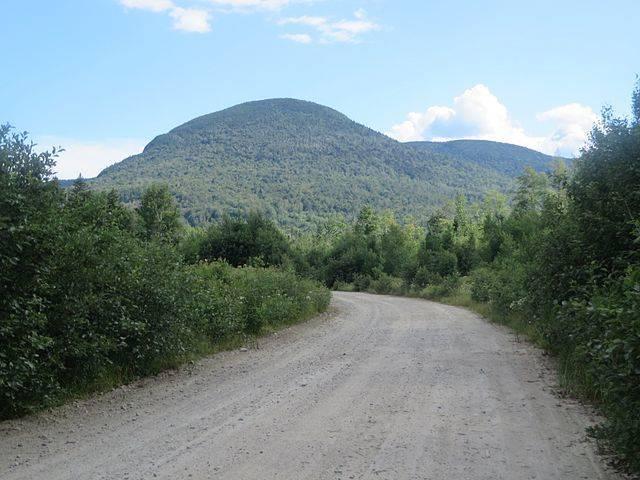
Yesterday, U-Haul and supermarket supplier C&S Wholesale Grocers announced a commitment to offset their wood consumption by boosting the protection of forest-based supply chains. Both companies are working with The Conservation Fund, a non-profit that promotes conservation with an environmental and economic focus resulting in the protection of 7.8 million acres of land since 1985.
Such work by U-Haul and C&S stands out because this program requires far more effort than simply purchasing carbon offsets. Both companies’ contributions will create investments in land easements that will restore and protect native habitats. The outcome is a wide array of ecosystem services, instead of just a line item within a ledger indicating a nebulous carbon return.
The key to this program is the ongoing protection of what the Fund says is over 8,700 acres of working forests surrounding Success Pond, located in northeastern New Hampshire near the state border with Maine. In the meantime, the Fund is striving to raise funds in addition to the $3 million allocated for this project through the U.S. Department of Agriculture’s (USDA) Forest Legacy Program.
From U-Haul’s perspective, its financial support for the Success Pond conservation program will help to offset the millions of boxes the moving and truck rental service sells to its customers annually. And for C&S, the wholesaler’s contribution can help alleviate the wood required to fabricate the thousands of wood pallets the company uses while it hauls food and other products to its client supermarkets.
This partnership is another step in the evolving relationship between the Fund and U-Haul. For a decade, the company has partnered with the conservation group to allow consumers to donate up to $10 in order to make their relocation a tad bit “greener.” According to the company, the result has been a total contribution of $4.5 million, from over 1 million customers, which fronted the costs of planting of at least 580,000 trees. To visualize this impact another way, those donations have restored over 1,600 acres of forest, equal to twice the size of Manhattan’s Central Park or more than 1,250 football fields. Other programs that have benefited from U-Haul’s support include working forest protections along California’s northern coast and urban forest plantings in Detroit and Atlanta.
What is important about these forests’ preservation is that they help protect and even generate local jobs, as such projects are often part of larger regional conservation programs. In the case of Success Pond, that conservation program is part of the larger Mahoosuc Gateway Initiative, which seeks to protect up to 30,000 acres of working forests in northern New Hampshire and long the Appalachian Trail.
The reality of U.S. forests is approximately half of them are “working” forests that are the base of the supply chain for pulp and paper companies. Threats such as climate change, along with deforestation in order to pave the way for commercial and residential development, constantly hover over many of America’s forests. The Fund’s work, in addition to partnerships between non-profits and paper companies including Kimberly-Clark and Procter & Gamble, help provide landowners an incentive to embrace more sustainable forestry measures so that these lands can be enjoyed by local residents, provide jobs and of course, sequester carbon.
Image credit: Ken Gallager/Wiki Commons

Leon Kaye has written for 3p since 2010 and become executive editor in 2018. His previous work includes writing for the Guardian as well as other online and print publications. In addition, he's worked in sales executive roles within technology and financial research companies, as well as for a public relations firm, for which he consulted with one of the globe’s leading sustainability initiatives. Currently living in Central California, he’s traveled to 70-plus countries and has lived and worked in South Korea, the United Arab Emirates and Uruguay.
Leon’s an alum of Fresno State, the University of Maryland, Baltimore County and the University of Southern California's Marshall Business School. He enjoys traveling abroad as well as exploring California’s Central Coast and the Sierra Nevadas.














